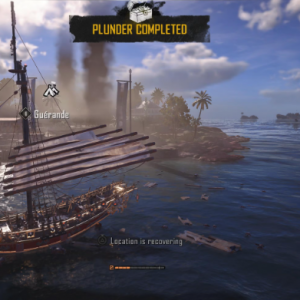Marine searchlights play a crucial role in ensuring the safety and efficiency of maritime operations. Their design must accommodate the challenging conditions of marine environments while meeting the specific needs of navigation, rescue missions, and offshore operations. This article delves into the essential considerations and features involved in designing high-performance marine searchlights.

Key Design Considerations
Durability Against Marine Conditions
Marine environments are harsh, characterized by high humidity, saltwater exposure, and temperature fluctuations. To withstand these conditions, marine searchlights must feature:
Corrosion-resistant materials such as stainless steel or marine-grade aluminum.
Sealed housings to prevent water and dust ingress, adhering to IP67 or higher standards.
High Illumination and Beam Range
The core function of a searchlight is to provide powerful illumination over long distances. Achieving this involves:
High-intensity light sources, such as LEDs or xenon lamps.
Adjustable beam focus, offering both wide-area illumination and concentrated beams for specific tasks.
Energy Efficiency
Energy efficiency is crucial, especially for vessels relying on limited power supplies. Modern designs integrate:
LED marine searchlights for lower power consumption and longer life.
Efficient heat dissipation systems to maintain performance and reliability.
Ease of Operation and Control
Searchlights must be intuitive and responsive for operators. Features include:
Remote control systems, including wired and wireless options.
Joystick or touch-panel interfaces for precise adjustments.
Pre-programmed scanning patterns for automated area coverage.
Advanced Features in Modern Searchlights
Smart Integration
High-performance searchlights increasingly integrate with vessel navigation and surveillance systems. This allows:
Automated alignment with radar or camera systems.
Real-time monitoring and diagnostics for maintenance.
Enhanced Beam Customization
Advanced optics and software enable searchlights to adapt to different scenarios. For instance:
Variable color temperatures for optimal visibility under diverse conditions.
Dynamic brightness adjustment based on ambient light levels.
Ruggedized Designs
To ensure reliability, modern searchlights incorporate:
Shock and vibration-resistant mounts.
Anti-icing and de-icing features for polar regions.

Emerging Trends in Searchlight Design
Sustainability
With increasing emphasis on eco-friendly solutions, searchlights are being designed with:
Solar power compatibility for auxiliary energy sources.
Recyclable materials in their construction.
Miniaturization and Portability
Compact and lightweight designs are gaining popularity, especially for smaller vessels and emergency use.
AI and Automation
Artificial intelligence is being integrated for smarter operations, enabling:
Predictive maintenance based on usage patterns.
Autonomous tracking of objects or hazards.
Applications of High-performance Searchlights
Navigation Assistance: Illuminating narrow passages or areas with poor visibility.
Rescue Operations: Pinpointing individuals or objects in distress during nighttime or adverse weather.
Security: Enhancing surveillance and deterring unauthorized activities around vessels.
Industrial Use: Supporting offshore platforms and cargo handling in low-light conditions.

Final Thoughts
Designing high-performance marine searchlights involves a blend of durability, innovation, and adaptability. By addressing environmental challenges, incorporating cutting-edge technology, and focusing on user needs, manufacturers can create searchlights that enhance maritime safety and efficiency. As advancements in materials, optics, and AI continue to evolve, the future of marine searchlight design promises even greater capabilities and reliability.





